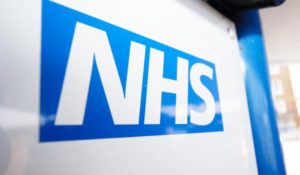Demand for mental health services rose during the coronavirus lockdown, according to an official report.
And the number of people seeking help still appears to be on the increase in Brighton and Hove and the wider Sussex area.
The NHS made more inpatient beds available across Sussex in response to the growing demand from those suffering a mental health crisis.
And an enhanced mental health line was provided 24 hours a day and seven days a week to support patients, carers and health and social care staff.
NHS bosses set up alternatives to A&E for people experiencing a mental health crisis at urgent care lounges and havens across Sussex.
And health service staff were offered – and continue to be offered – more psychological support.
The challenges – and the responses – were set out in a report to Brighton and Hove City Council’s Health Overview and Scrutiny Committee.
The report was prepared by the Sussex Health and Care Partnership – an “integrated care system” involving all NHS organisations and the councils that look after public health and social care in Sussex.
The report also set out plans to “restore services effectively” and future planning “including reviewing changes to services”.
It said: “GP practices have restarted to see patients face to face, following a clinical triage process.
“Telephone and digital appointments do continue to be routinely offered where possible but face-to-face appointments are available for those who clinically need them.
“Patients who are covid-19 positive or symptomatic are now mostly ‘zoned’ in practices, with a small number of ‘hot sites’ remaining.
“Clinical guidance is being co-ordinated to ensure the most appropriate support for high-risk patients as services restore.”
The report also said that the new 111 “clinical assessment service” went live last Thursday (1 October).
It said: “There is a wider range of health professionals available as part of the 111 service so more patients should be able to receive help and advice on the call.
“There will also be the ability to book a set number of patients into a telephone appointment with their practice.”
The report said that far fewer patients were being seen and treated in hospital although outpatient follow up appointments were at 82 per cent of their pre-covid level.
Outpatient first appointments are running at 66 per cent of their pre-covid level, day cases at 52 per cent and elective admissions at 49 per cent.
According to the report, “the system has restored CT and MRI services to pre-covid-19 levels and will maintain this position for the rest of the year.
“The system has seen an increase in cancer referrals to pre-covid-19 levels and plans to meet this level of demand throughout the remainder of the year.
“There is an increase in patients waiting over 52 weeks.”
NHS chiefs plans to make more use of “virtual consultations (which) will become the default position”.
Already “45 per cent of first outpatient appointments in Sussex in August were virtual compared to 5 per cent pre-covid-19”.
The report added: “Work with Healthwatch has already taken place to gain insight into attitudes, behaviours and barriers to digital use to help inform this work.”
Surgeons and consultants are trying to work out which patients are most at risk and require clinical treatment most urgently as they work on their waiting lists.
Work is taking place to try to find innovative solutions in diagnostics and treatment and the NHS across Sussex is likely to make “continued use of Independent sector capacity”.
NHS chiefs said that they were working with Healthwatch on evaluating a “wellbeing checks pilot scheme” to support patients after they are discharged from hospital.
They said that they would inform the council’s Health Overview and Scrutiny Committee (HOSC) of any proposed “service changes” and consult members about the proposed changes.
The “virtual” HOSC meeting is due to start at 4pm next Wednesday (14 October). It is due to be webcast on the council’s website.









